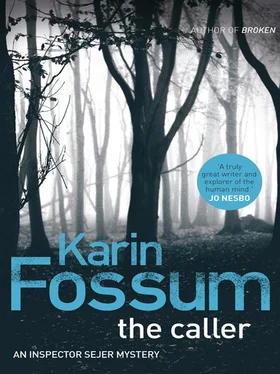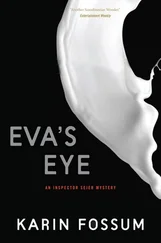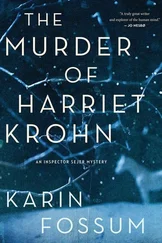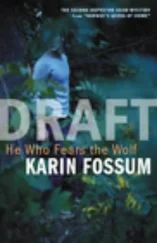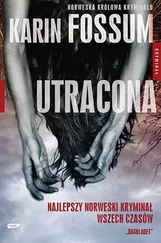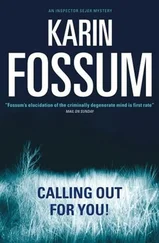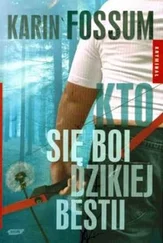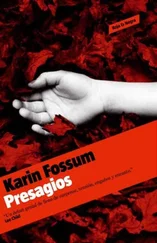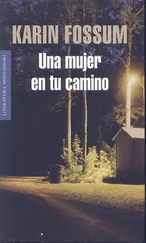Johnny Beskow thought long and hard. ‘She won’t be disinherited before she croaks,’ he said dejectedly. He folded the statement and put it back in the envelope, pondering. ‘By the way, the little twit shouted at me again today, that Else Meiner. She called me a codface.’
Henry smiled broadly, so that his yellow teeth were visible. ‘Well, have you seen yourself in the mirror lately?’
‘In the mirror? Why?’
‘The question is, do you look like a cod?’
‘Of course not.’
‘Right. So why do you get so upset? If you know it’s not true?’
‘She plays in the Hauger School Band,’ Johnny said.
‘I know. I can hear her trumpet from here. Sometimes she practises at night. I’ve heard both “Bravura” and the “Entry March of the Boyars”. She’s quite good, I’ll have you know.’
‘Do they practise at the school? At Hauger School?’
‘I would imagine so. On Thursdays, I think. I’ve seen her on her bicycle with the trumpet case on her rack, and she’s gone for a few hours. She’s like you. She goes everywhere on that blue bike. There’s something buzzing in here,’ he said. ‘Can you see if it’s a wasp? I know that sound.’
Johnny got up and walked around the steamy living room, examining every nook and cranny, looking under the curtains, lifting the cushions of the sofa. ‘It’s a bluebottle,’ he reported, ‘and it’s as big as a house. I’ll kill it for you. They’re full of disease. I wouldn’t give five kroner for your immune system.’
‘I wouldn’t either,’ Henry said.
Johnny found an old issue of the church bulletin, rolled it into a tube and smacked the bluebottle. When he had taken care of it, he returned to the footstool to read the newspaper. But he skipped the story about the fake obituary, which was well covered across the whole back page. Afterwards, he went to the kitchen and buttered some bread for them. He put sausage and cucumbers on the slices of bread, filled a jug with squash and added ice cubes. Then he sneaked over to open the kitchen window so a little fresh air could find its way inside. They ate in silence.
Henry’s dentures clacked while he chewed. ‘I’ll give you some pocket money,’ he said. ‘So you’ll have petrol.’
‘Thanks, Grandpa.’
‘When you’re older you can move. And live your own life.’
‘Have to get a job first,’ Johnny said.
After a while the old man fell asleep, his mouth agape and his chest littered with breadcrumbs. Johnny rose from the footstool, wandered round the room and looked at the photos on the wall. There were many of himself as a little boy, with short trousers and blond hair, and tiny trainers with red laces. I guess I was an all right kid, he thought, I can’t remember being difficult. Or maybe I was without knowing it. He dug around for good memories, but all that came to him was the sound of doors being slammed. And some images of his mother. She always stood with her back to him, bent over the worktop, always in despair over something. Her steps were hard and decisive, and she banged cupboards and drawers: an eternal storm raging from room to room. Then he examined the picture of his grandmother. She had died young, and he had never known her. But she seemed nice in the picture. Where did all the malice come from? When did it begin to grow? At length he saw a picture of himself sitting on the red moped, his helmet under his arm. In a small cabinet with glass doors his grandfather had several trophies he had won playing bridge. On top of the bookshelf was a mounted grouse that gazed at him with black glass eyes. As a boy he’d often been scared it would swoop down and get him, peck at him with its sharp beak. He returned to the footstool, reached out and took Henry’s hand, squeezing it gently. The old man opened his eyes.
‘Well, what do you know,’ he said. ‘I’m still here. That’s not too bad.’
‘Did you dream?’ Johnny wanted to know.
Henry considered. ‘No, not a thing.’
‘Tell me what it’s like to be old,’ Johnny said.
Henry Beskow gave a dismissive wave with one hand, made a discontented miserable grunt. ‘It’s difficult. It’s like swimming in salt water.’
‘Why are you so allergic to wasps, Grandpa?’
‘I don’t know. It’s just a weakness I have.’
‘How allergic are you? Are we talking about fatally allergic?’
‘Yes. Ha ha. We’re talking about deathly allergic.’
‘But why would you die from it? What happens?’
‘My throat swells up, no matter where the wasps sting me. I can’t breathe. Close the kitchen window before you go,’ he added. ‘I know you opened it. And take a couple of hundred kroner from the jar on the fridge, so you can buy petrol and whatever things you boys need.’
Johnny patted him on his dry, wrinkled cheeks.
He didn’t see Else Meiner when he rode up the street.
Lily Sundelin browsed the newspaper.
She also had her eye on Margrete, who was sitting in a baby bouncer at her feet. Now and then she lifted her foot and carefully gave the bouncer a little nudge; the chubby child smiled with her toothless gums. Karsten, at the table with a crossword puzzle, observed them on the sly. So much has happened, he thought, and Lily is a completely changed person. She has another voice now, another look in her eyes.
A different sensitivity.
Lily looked up at him and pointed to the newspaper. ‘Have you read about the fake obituary?’
Karsten put his pen down and nodded.
‘Why didn’t you say anything?’ she said.
‘Why should I say anything? You can read about it yourself.’
She folded the newspaper and put it on the table. Her gestures betrayed her irritation. Then she leaned over the bouncer and stroked Margrete’s cheek. ‘It could be the same man. It has to be the same man.’
Karsten Sundelin picked up his pen again and wrote a word in the puzzle. ‘Exactly,’ he said. ‘No one’s talking about anything else. But talking doesn’t help.’
Once more he was overcome with a strange feeling: a force that rose from deep within and made it hard for him to breathe. As if a new Karsten Sundelin had begun to grow inside him, a Karsten which had lain in slumber and now wanted to escape.
He who doesn’t seek revenge, he thought, sets nothing to rights. It was an old adage. Why do we not live by it any more? Why should the authorities have to avenge them? Why did criminals have so many rights? Why were they entitled to respect and understanding? Had they not acted so unlawfully that these rights should be stripped from them?
‘Something terrible must have happened in his life for him to do these things,’ Lily said.
‘Something happens in everyone’s life,’ Karsten said.
He stood up and went to the bouncer, lifted the child and held her close. He felt her wet mouth at the hollow of his neck, and her scent reached his nostrils. Sometimes he came close to tears because Margrete was a miracle. Margrete was his future, his old age; she was hope and light. She was the last cipher in the code to the vault of his innermost self, and he had finally gained access to the truth about himself.
He had found a warrior.
He returned Margrete carefully to the bouncer and went back to his crossword puzzle.
‘Revenge is sweet,’ Lily said suddenly.
‘That’s what they say,’ Karsten said. ‘I’ve never avenged myself on anyone, but it’s certainly true.’
‘But why sweet?’ she said. ‘Isn’t it a strange thing to say?’
‘It must have something to do with the rush of endorphins you get when you finally do it. Something like that, I don’t know. I don’t really understand it.’ He put his hands behind his head and stretched out his long legs.
Читать дальше
